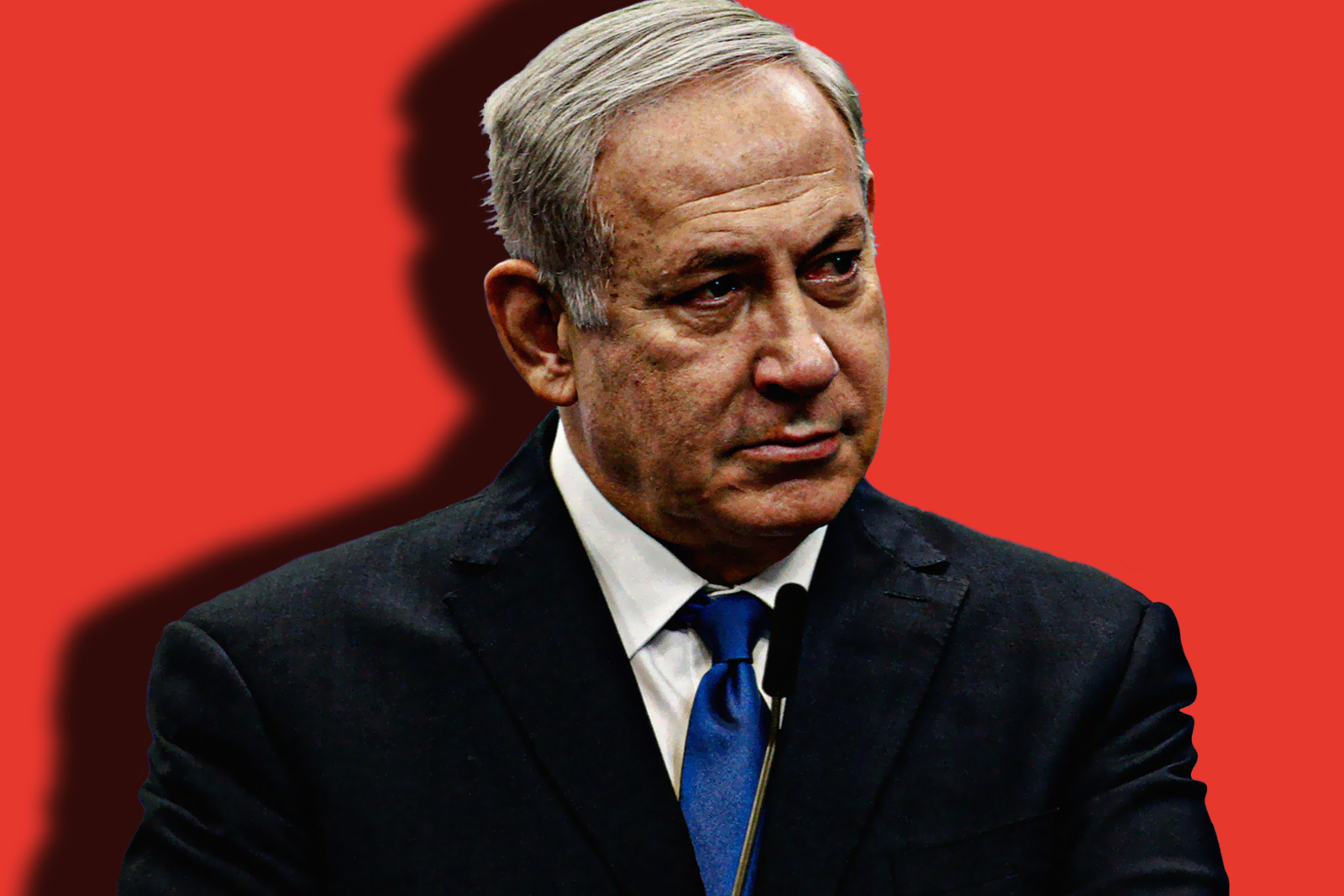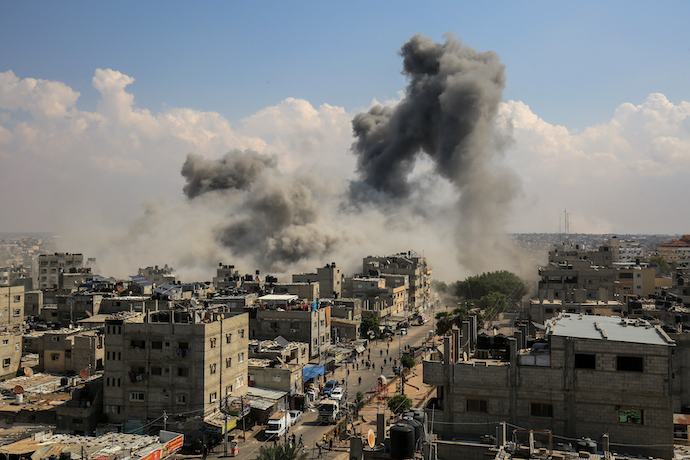
If this is Israel’s 9/11, the U.S. Offers a Cautionary Tale
Numerous pundits and casual observers alike have referred to the recent assault by Hamas as Israel’s 9/11. The parallels are indeed striking. There is the national shock and apparent disbelief that a foe perceived as a minor threat could land such a powerful and disproportionate blow. There is the galling intelligence failure when the clues all seemed to be laid out before the appropriate and responsible agencies yet they were blind to the danger. There is the scale of the casualties, with death tolls not seen domestically in some 50 years since Yom Kippur and Pearl Harbor respectively. And there is a strong desire for blame and revenge, which naturally follows a physical and mental gut punch of this nature.
Israel understandably wants to retaliate for this attack, and they are justified in seeking retribution on the perpetrators of these unspeakable crimes on innocent civilians. It would be preposterous and unrealistic to suggest otherwise. Israel has long had an antagonistic, us-against-the-world, Old Testament culture by virtue of geographic and political necessity. It grew up in a neighborhood full of enemies and has maintained and ensured its survival and sovereignty through stubbornness, determination, and above all, military strength and superiority. But in contemplating and calculating its response, Israel would be wise to look at the failures of their American counterparts to determine what lessons should be learned and what pitfalls avoided.
Lesson #1: Don’t Squander International Good Will
At the moment, there has been a rare outpouring of international goodwill and sympathy toward Israel and its citizens, much like the U.S. enjoyed after 9/11. Israel has long been the favored whipping boy of the United Nations, and this chance to capitalize upon the positive sentiment that the Hamas attack has engendered is a rare opportunity that should not be squandered.

Israel could show itself to be better than the conventional estimation of it. It could try to live up to its lofty democratic and humanitarian ideals, embraced by its founders as a different type of state. This would of course require some measure of restraint. No one expects Israel, a martial state from birth, to take this affront to its people, its territory, and its security lying down. A response is justified and necessary. But the nature of the response, and the extent of the retaliatory casualties and upon whom they are inflicted will go a long way toward determining international opinion of Israel going forward.
Israel and its supporters may well claim that they have done just fine without the warm embrace of the international community. But it is easier to swim with the current than against it. And banking a measure of international goodwill to cash in at a later date would serve Israeli interests well, both in a global geopolitical sense and in particular in its dealings with its neighbors. If Israel does hope to consummate the long-muted accord with Saudi Arabia, the nature of its response may well dictate the near-term likelihood of this diplomatic recognition actually coming to pass.
Lesson #2: Keep Proportionality in Mind
Just War Theory stipulates that military responses by countries in conflict should be proportional to the attacks they have suffered. After 9/11, the United States was a bull in search of a matador, seeing red wherever it went. It was justified in going after the Taliban, who had sheltered and aided Al Qaeda, but the indiscriminate way it racked up collateral civilian causalities in the conduct of this campaign earned it international ire and cost it critical domestic support among Afghanis.
When the U.S. cynically, duplicitously, and unilaterally went after Saddam Hussein in Iraq, it forfeited its international legitimacy when it was eventually deemed responsible for the deaths of hundreds of thousands of Iraqis. The principle of proportionality was grossly violated. It was horrible and tragic that 3,000 Americans died in New York and Washington in September of 2001. But the scope of the attack didn’t hold a candle to the death and destruction that were subsequently visited upon Afghanistan and Iraq. And the consequences, military, political, and psychological, were ultimately devastating for the U.S.
The brutality and depravity of the Hamas attacks cannot and should not be downplayed or disregarded. The intentional targeting of unarmed civilians, and children in particular, is abhorrent and is a war crime under the Geneva Convention. Hamas leaders deserve to be prosecuted at the International Criminal Court and jailed for life. But just because Hamas resorts to inhumanity and depravity does not mean that Israel should do so or has a license to do so.

The principle of proportionality would dictate, some may say cynically, that the 1,000 or so deaths inflicted upon Israel should be matched by similar casualty rates. The number of deaths in the Gaza Strip from a full-scale Israeli invasion is likely to be in the tens of thousands. This is by no means proportional and will be highlighted by all antagonists and critics of Israel. This is why a targeted, surgical retaliation would be far preferable to a full-on, all-out assault on Gaza. Yes, Hamas should be crippled and ideally removed. But leveling buildings, hospitals, and schools and cutting off all water and electricity will only turn the international community away from Israel yet again. And violate the Just War principle of proportionality such that Israel once again looks like the schoolyard bully preying upon smaller, weaker kids.
Lesson #3: Beware a Leader Not Up to the Task
Leadership matters. And it matters more in times of crisis. This is an immutable law and unmistakable reality of international relations and foreign policy. When the two planes struck the Twin Towers, it was under the unprepared and unfit leadership of a president who, by all rights, lost the election the previous year. I still wonder how the U.S. response might have been different had we had a more mature, deliberative, intelligent leader in Al Gore at the helm. Sadly, we did not. We had George W. Bush—or more to the point Dick Cheney—calling the shots, and those shots were vindictive, venomous, and violent.
The Bush administration, much like the Netanyahu government, overlooked key intelligence that warned of the attack. And so, they felt guilty. So they lashed out and tried to deflect the blame and criticism that rightfully came their way with a muscular military response so that no one would doubt their intentions and their machismo. Don’t tread on us, they said, or you will reap the whirlwind. It didn’t matter whether they chose the right victims, someone was going to pay. As long as it wasn’t members of the administration politically.
Israeli Prime Minister Benjamin Netanyahu will undoubtedly seek to deflect from his undeniable culpability in this tragedy. At its core, there is the intelligence and military failure that can be traced directly back to the antagonistic relationship that Bibi has cultivated with the military by dint of his attempted ill-advised, anti-democratic judicial overhaul. Numerous military and intelligence officials have publicly criticized Netanyahu’s judicial reforms and stated that Israeli military readiness suffered as a direct result of reservists not wanting to support his government. The head of the Israeli Air Force offered just such a warning not two months ago. Yuval Harari, in an insightful op-ed in The Washington Post, detailed how Netanyahu’s populism, kowtowing to the extreme religious right, and desire to stay in office above all else weakened Israeli security and allowed this attack.
When critical times emerge, you need outstanding leaders to do so as well. The U.S. had Washington, Lincoln, and FDR when it had to navigate critical points in its history. Unfortunately, it was saddled with the incompetent George W. Bush at another such critical juncture. Israel had Ben Gurion, Begin, and Rabin at important times, but finds itself in the clutches of Netanyahu, a leader similarly unsuited for the moment. Israel needs to move on from Bibi to have a better class of person and leader, one who is up to the times and up to the task.
How Do All Parties Move Forward?
It seems clear that Netanyahu is intent on razing Gaza to the ground. I sincerely hope that does not happen, given the thousands of innocents who will die or have their families irrevocably shattered by the ensuing violence. I would like to think that we’ve moved beyond an eye-for-an-eye mentality. If Israel is going to have meaningful security and eventual peace, they will have to live side-by-side with the Palestinians. And killing innocent Palestinian civilians will in no way advance this cause. This is not to say that Hamas can continue to fire rockets into Israel or kill its civilians. Hamas must be dealt with. But ideally, in the most humane, surgical, and targeted way possible.
But how is a longer-term peace to be gained and a stable status quo attained in Gaza? Brett Stevens, the conservative New York Times columnist with whom I usually disagree, had part of a good idea: after the Israeli military campaign, an international peacekeeping force led by Arab states that have signed diplomatic agreements with Israel could take over the temporary administration of the Gaza Strip from Hamas. It is clear that Hamas cannot be left in place. But this will leave an inevitable power vacuum that will be filled by someone and something. We must make sure that it isn’t a similarly radical and militant group.
The Arab states of Jordan, the United Arab Emirates, Egypt, and even Saudi Arabia (which doesn’t yet but could soon diplomatically recognize Israel) could contribute to a pan-Arab peacekeeping force that would have greater legitimacy than a UN-led mission or certainly any Israeli occupying force. Stephens suggests turning over responsibility to the Palestinian Authority, seemingly ignoring the fact that they are utterly incompetent and unfit themselves, festering under the leadership of an increasingly illegitimate Mahmoud Abbas. There would have to be some kind of international governing council set up to monitor and administer the region until such time as Gaza could be rebuilt, nascent political institutions formed, and elections held.
Israel should desperately want to avoid repeating the same mistakes that the U.S. committed in the wake of 9/11. They would be wise to exploit the current international goodwill, respect the principle of proportionality, and seek new, more able leadership. Maybe then they can be a part of forming a true New World Order in the Middle East, the likes of which escaped the U.S. at the turn of the century.
